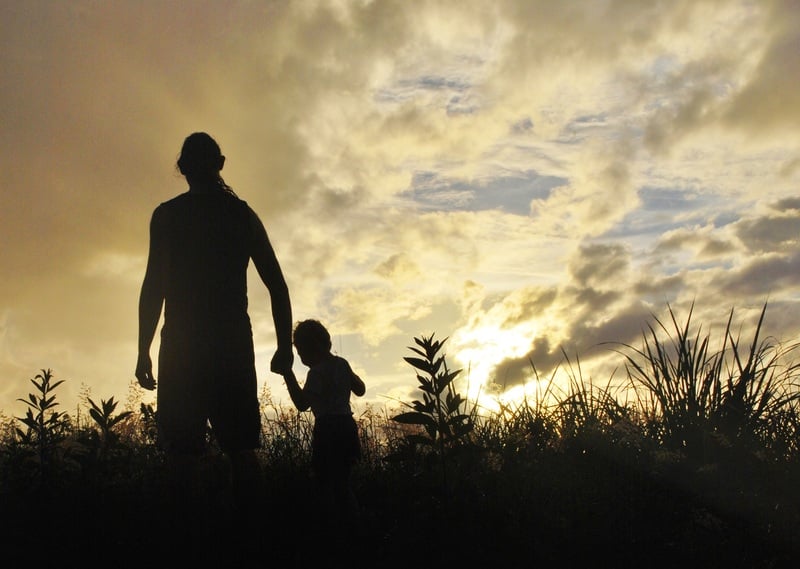
J. D. Tuccille is an atheist. But his son has become a Christian. And his wife has returned to her Jewish religion. And Tuccille is fine with that. He’s glad. In fact, he welcomes the prospect of a religious revival in America.
He tells about this in an article he published in Reason entitled A Religious Revival Could Help Reinvigorate the Liberal West, with the deck, “Even atheists might prefer time-tested faiths over illiberal upstarts.”
His son became a Christian because he was homeschooled:
For my son, the journey to faith began in homeschooling lessons about the Enlightenment and the foundations of Western civilization. He concluded the West has become unmoored from its core values and that many of its inhabitants no longer hold the beliefs that let us become free and prosperous.
His impressions were cemented when he briefly attended a private school and watched a large share of his classmates embrace intolerant progressivism. Soon, they were purging one another out of study groups and online chats as deviationists from the groupthink of the moment. If you’d called them religious fanatics, they’d have been offended. But Anthony believed that, in their search for meaning in the world, his classmates had rejected relatively mild and tolerant traditional beliefs only to fill their place with illiberal substitutes that allowed no room for dissent. He preferred traditional faith. . . .
My son first embraced Christianity as a pillar of the liberal Enlightenment, then found further meaning in a theology that connected him with a Creator that, according to the Declaration of Independence, endowed us with “certain unalienable Rights….Among these are Life, Liberty and the pursuit of Happiness.”
Here is evidence of the value of homeschooling. Indeed, it sounds like Anthony had a classical education that, as his dad says, “introduced him to the foundations of Western civilization,” which, of course, includes Christianity.
Meanwhile, Tuccille’s wife, who was raised as a non-observing, secular Jew, embraced the religious side of her Judaism because of the Hamas attack on Israelis on October 7, 2023, along with the wave of anti-semitism inspired by the Gaza war.
“Like many in Israel, the U.S., and elsewhere,” writes Tuccille, “she realized that she was hated and could be hunted as a Jew whether or not she was observant.” This led her to become what is being called an “October 8th Jew, someone who started to take her Judaism seriously after the attack. Tuccille quotes an Israeli journalist:
“Across the Jewish world, particularly in North America, there’s a wave of what they call ‘the surge’—people who…are rediscovering their Jewish identity in the aftermath of the October 7 attack,” according to Zvika Klein in the Jerusalem Post.
Tuccille feels that American “liberalism”–that is, in the sense of the Latin root for “liberty,” our heritage of freedom, inalienable rights, and democratic self-government–is in danger from the religion substitutes put forward by progressivism and by some on the right.
My son had his run-in with totalitarian progressivism which fueled an Inquisition-like environment at his old school. It’s mirrored on parts of the right by an illiberalism that rejects individualism, limited government, and free markets. Now, there are attempts to unify these ideological strains in a distilled post-liberalism that embraces collectivism and authoritarianism. Where that ends is probably something like Republican Paul Ingrassia’s and Democrat Graham Platner’s shared taste for Nazis.
Tuccille believes strongly in “liberalism.” And he sees the “illiberalism” of Marxists, who reject religion as the opiate of the people; Nietzscheans, who reject Christianity with its ethic of love as getting in the way of the superman’s will to power; and woke progressives, who reject religions as the impositions of group oppression.
Doesn’t he see that the logical and historical conclusion of atheism is some kind of illiberalism? So why does he persist in his atheism? If there is no God, as he believes, why doesn’t he just go with that and be illiberal like so many of his fellow atheists? Why is he so committed to liberalism? He must perceive some kind of moral order, and he surely thinks its ideals have some kind of basis. As someone committed to liberalism, why does he personally reject its foundation?
Let’s hope–and pray–that Tuccille starts listening to his wife and (especially) to his son.
Photo via pxhere, CC0, Public Domain
Select your answer to see how you score.
